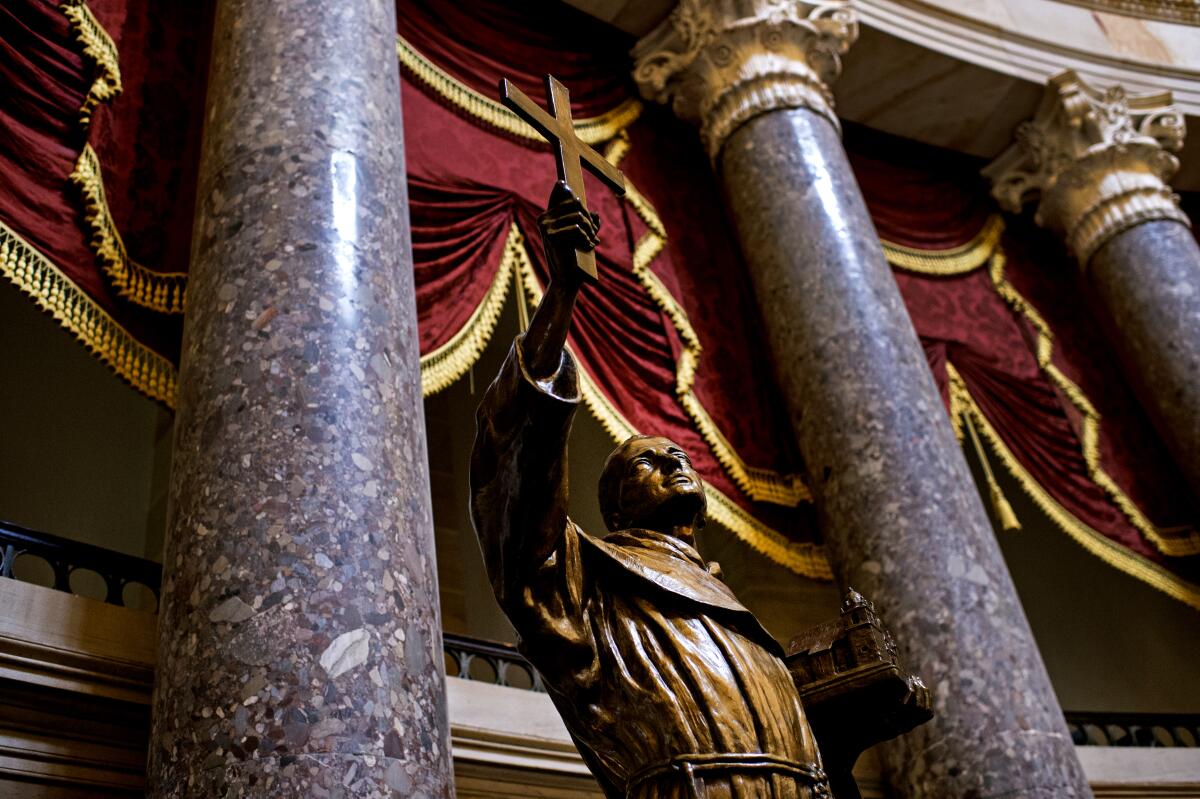Letters to the Editor: In historical context, JunÃpero Serra doesnât look like a monster

To the editor: Father JunÃpero Serra, whose statue in the U.S. Capitol The Times Editorial Board says needs to be replaced, should be evaluated in his historical context.
Serra consciously founded agricultural and religious missions that provided an alternative to genocide for California tribes in the 18th century. Had he not done so, the Spanish military would have ruled their fates.
Early in his California experience, Serra witnessed the brutal killing of Indians in San Diego by the military. Later, in Monterey, he defended his mission cohort against the illiberal and biased decisions of the Spanish lay rulers.
One can argue that Spanish settlement deprived the first people of their land and culture. But after the Americans took over California, bounties were put on the heads of first people, who were in some cases hunted to extinction.
One can also argue that Serra preserved the lives and communities of the tribes wherever the missions he founded created agricultural settlements. One need only imagine what would have happened had only the Spanish soldiers been in charge.
Jean E. Rosenfeld, Honolulu
The writer is a historian of religions.
..
To the editor: In your editorial calling for a new statue from California in the U.S. Capitol, you state that Ronald Reagan was âthe only U.S. president from California who didnât resign in disgrace.â
What about Herbert Hoover? Like Reagan, he was born in the Midwest but was elected while officially residing in California. He did not resign.
The guy who actually did resign in disgrace, Richard Nixon, was no longer a Californian at the time of his election to the presidency. After being defeated for the California governorship in 1962, he left the state and moved to New York.
Nixon was a New Yorker when he won the presidency in 1968. Letâs let New York have him.
Steven Formaker, Los Angeles
More to Read
A cure for the common opinion
Get thought-provoking perspectives with our weekly newsletter.
You may occasionally receive promotional content from the Los Angeles Times.










